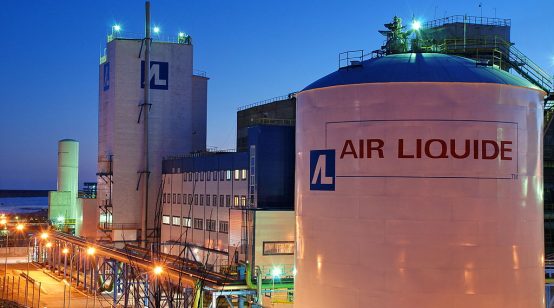
Germany is increasingly looking to hydrogen as an alternative to fossil fuels to end the dependence on coal. Last month the Economy Ministry announced funding for 20 hydrogen research labs and natural gas pipeline owners asked for rule changes to allow hydrogen to be added to the mix.
German hydrogen demand in transport and industry is forecast to grow by 37 per cent by 2030.
Germany imported 63.5 per cent of its energy in 2016, most of it oil, coal and gas.
Hydrogen only releases water when burned, although it also explodes.
Industrial-scale development might solve the problem of keeping energy supply constant when the sun is not shining and there is no wind.
In July six Green parliamentarians drafted a position paper on hydrogen production, expressing their unequivocal support for the first time.
“Hydrogen is one of the hottest topics in the energy transition in the country at the moment,” said Inga Posch of FNB Gas, the federation of Germany’s gas pipeline operators. “The interest from the private sector is really huge. Germans have been too focused on the electrification of the economy, so we are starting on the process with a delay.”
Germany has the world’s first hydrogen-powered train and Economy Ministry Peter Altmaier last month said he wanted the country to pioneer hydrogen technology.
Altmaier told the media: “We aim to become the world number one in hydrogen technologies.
“Hydrogen technologies offer enormous potential for the Energiewende, climate protection and new jobs.
“With the laboratories, we’ll be able to test how new hydrogen technologies can be applied under real conditions and on an industrial scale.”
German steel producer ThyssenKrupp said it planned to become carbon-neutral by 2050. “By 2050, we can reduce our steel-production-related emissions by 80 per cent,” said Thyssenkrupp’s Donatus Kaufmann.
Japanese carmakers have put hydrogen fuel cells in their vehicles and the lightest element is also used domestically.
Royal Dutch Shell says it sees hydrogen as a reliable and easy to transport fuel.
Last month Berlin unveiled 20 research laboratories with €100 million annual funding to develop industrial-scale applications. Labs in coal-dependent, “structural change” regions are expected to receive extra funding of €200 million.
Germany Trade and Invest CEO Jurgen Friedrich said: “This initiative shows how serious Germany is about making the transition to clean energy a reality.
“It should provide a major boost to this energy sector.”
Siemens last month said it was building a hydrogen laboratory in eastern Germany. Uniper has also developed a power-to-gas plant, the world’s first turning wind energy into gas for the grid.
Europa-Park. Germany is increasingly covered in solar panels. Picture credit: Energy Reporters






[…] “Germany Hopes To Replace Coal With Hydrogen” • Germany is increasingly looking to hydrogen as an alternative to gas to end the dependence on coal. Last month the Economy Ministry announced funding for 20 hydrogen research labs, and natural gas pipeline owners asked for rule changes to allow hydrogen to be added to the mix. [Energy Reporters] […]
[…] “Germany Hopes To Replace Coal With Hydrogen” • Germany is increasingly looking to hydrogen as an alternative to gas to end the dependence on coal. Last month the Economy Ministry announced funding for 20 hydrogen research labs, and natural gas pipeline owners asked for rule changes to allow hydrogen to be added to the mix. [Energy Reporters] […]
and where does the hydrogen come from? This shows a basic ignorance of energy. Only two answers: from Russian gas and from nuclear power. Let us hope that Denmark blocks the first. The only sustainable answer is the second.
[…] eigenaars van aardgasleidingen vroegen anderzijds regelwijzigingen om waterstof aan hun aanbod te kunnen […]
[…] son approvisionnement en énergie, l’Allemagne s’intéresse de plus en plus à l’hydrogène comme alternative aux combustibles fossiles. Le pays espère utiliser l’hydrogène pour remplacer le charbon dont il dépend. Le mois […]
The CCC want to do the same in the UK. It’s only going to cost an extra £1,270 per year on your gas bill.
Still – you’ll be supporting plenty of green jobs, and while you’re spending all of that extra cash to cook the joint and roast the veg, you won’t be able to spend it flying off on holiday or dining in your favourite restaurant.
Search for: “£1270 more each year forever”
And, you’ll have to have a good think about having your roof redesigned so it: “…can be safely blown away from the rest of the structure in an explosion…” [See Wikipedia’s ‘Hydrogen safety’ page.
I’ve even started a Government petition to – ban hydrogen from replacing natural gas – go on to all Government Petitions and put that into ‘Search’. Have a think about signing it.
[…] grandes empresas: hidrógeno. Pero ha sido en las últimas tres semanas cuando el Gobierno federal ha impulsado 20 laboratorios sobre este flamable, cuando ha quedado claro que el hidrógeno ha dejado de ser solo una gran promesa para romper con […]